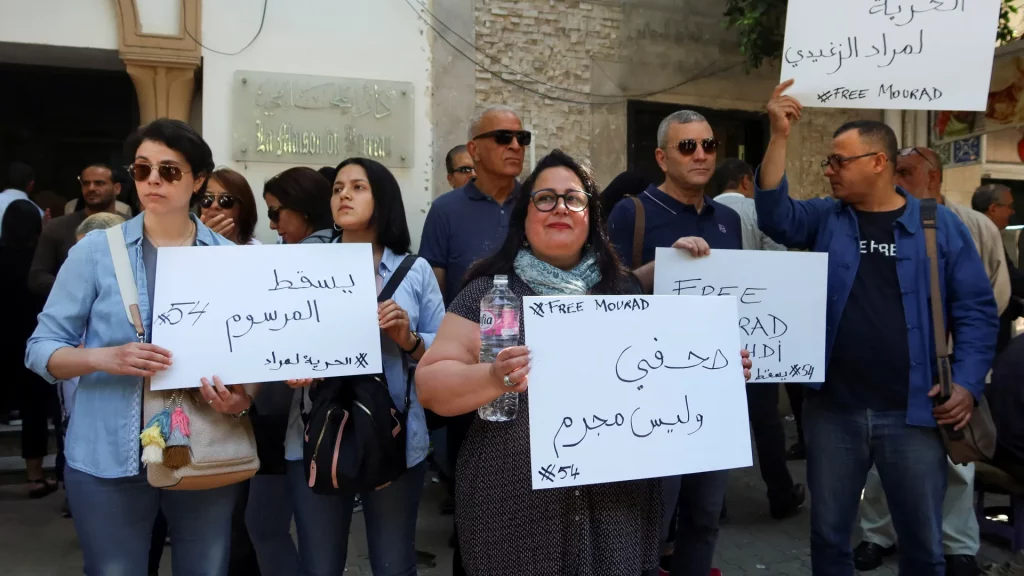Tunisia: Two journalists sentenced amid crackdowns

Tunisia’s increasingly paranoid regime is crushing any dissent with an iron fist, prosecuting those who publicly criticize the authoritarian government’s endless shortcomings. In the latest round of prosecutions, two TV and Radio journalists were sentenced to a year in prison for criticizing President Kais Saied’s administration on May 23rd, according to AP.
Borhen Bsais and Mourad Zghidi’s sentencing came less than two weeks after both were arrested in a May 11th police raid on Tunis’ bar association headquarters, along with well-known regime critic and lawyer Sonia Dahmani.
The two journalists were given six months each for spreading “fake news” and six months for “making false statements with the aim of defaming others.”
READ: Tunisia: Three Saied critics arrested in police raid
Bsais and Zghidi were prosecuted under Tunisia’s “Decree 54” law which criminalizes the dissemination of “fake news” that might harm public safety or national defence. Rights advocates, however, have widely criticized the decree for its vagueness and say it’s being used to repress criticism of Saied.
Both defendants denied the allegations and referenced laws implemented in the country’s 2011 revolution that protect freedom of expression, while claiming that analyzing and commenting on political and economic developments was part of their job as journalists.
“I am neither for nor against the president. Sometimes I support his choices, sometimes I criticize them,” Zghidi said.
READ: Tunisia detains prominent migrants’ rights activist
Bsais, the host of the “Emission Impossible” radio show, was accused of undermining Saied on air and in Facebook posts made between 2019 and 2022. He defended his opinions and objected to being arrested “like a dangerous criminal” on May 11th.
The trail has drawn international condemnation and public demonstrations, with a crowd of journalists protesting outside of the court during proceedings.
“We are all on provisional release because any journalistic work can give rise to prosecution,” said president of Tunisia’s National Journalists Syndicate Zied Dabbar, stressing that 39 journalists have been prosecuted under Decree 54 this year.
The North African country has seen growing civil unrest in recent months. The Tunisian economy is at a standstill, with growth of 0.4% and 16.4% unemployment in 2023, according to AFP on March 2nd.
As President Saied has ruled by degree since 2020, there will be few others to blame for the country’s shortcomings if and when authorities lose their grip on its increasingly frustrated population.
Ground zero for 2011’s Arab Spring uprisings, Tunisian authorities have good cause to be worried but look to throwing fuel on the revolutionary fire once more with their oppressive methods.
AP / AFP
Want to chase the pulse of North Africa?
Subscribe to receive our FREE weekly PDF magazine














